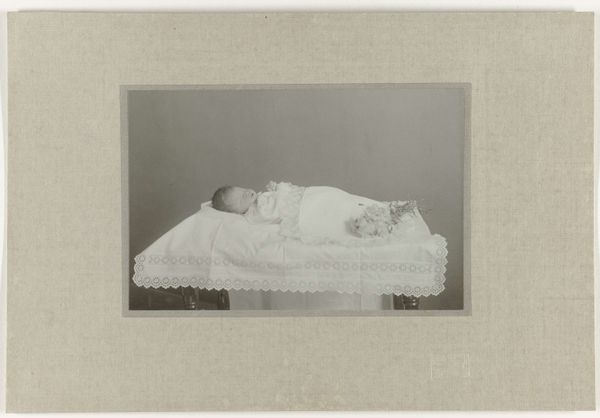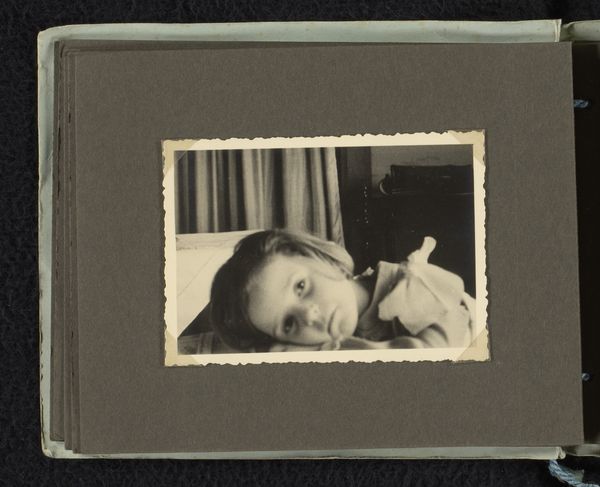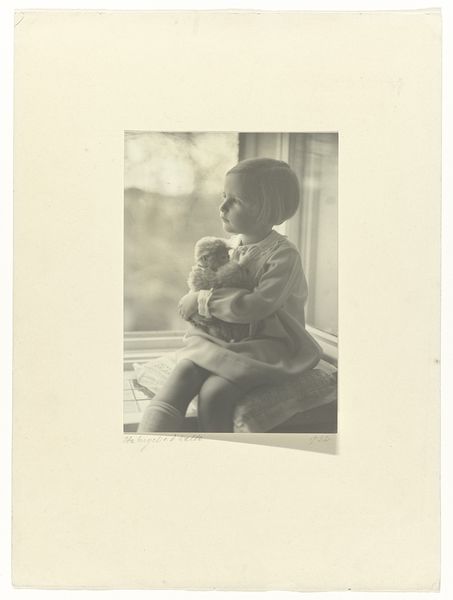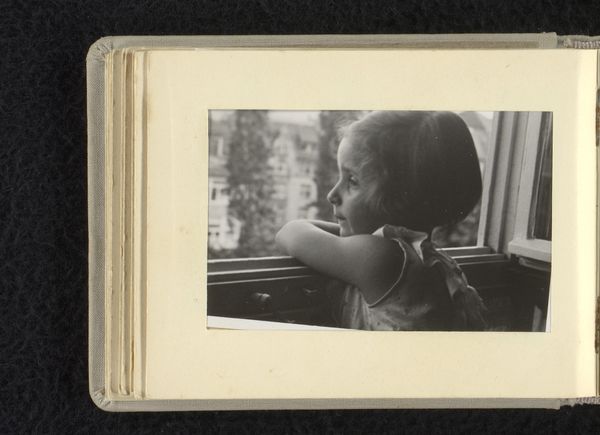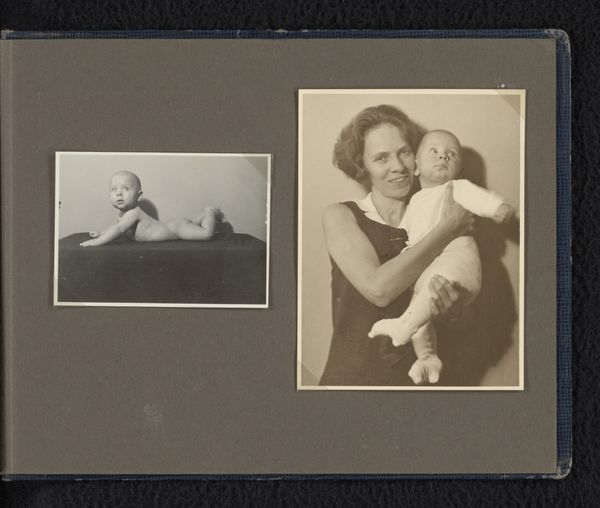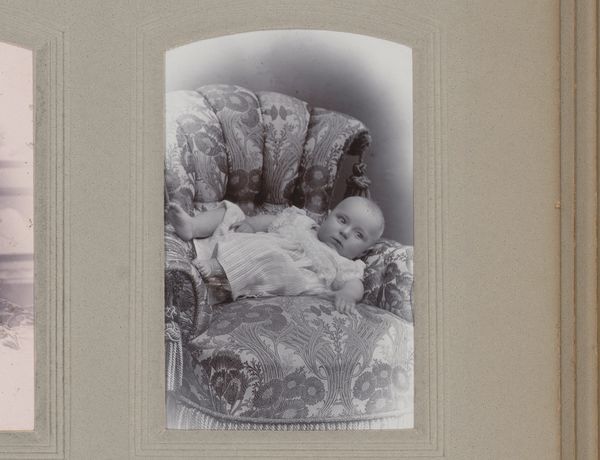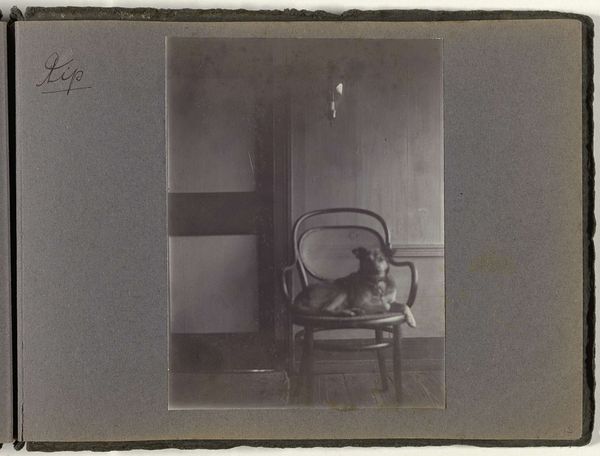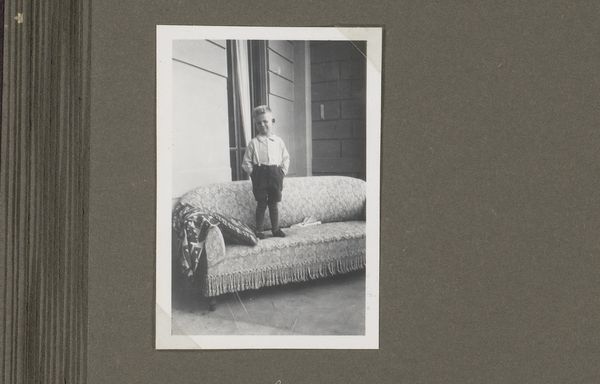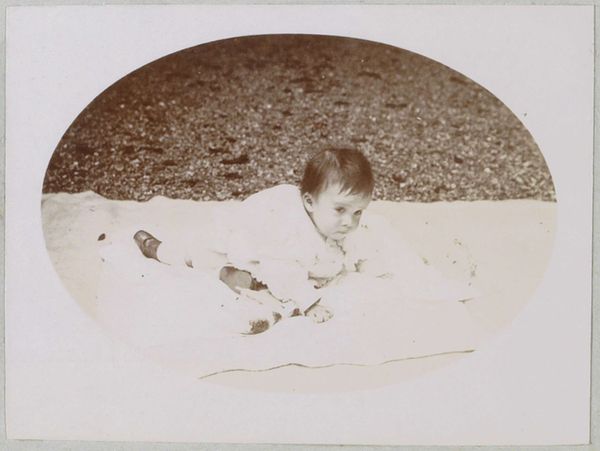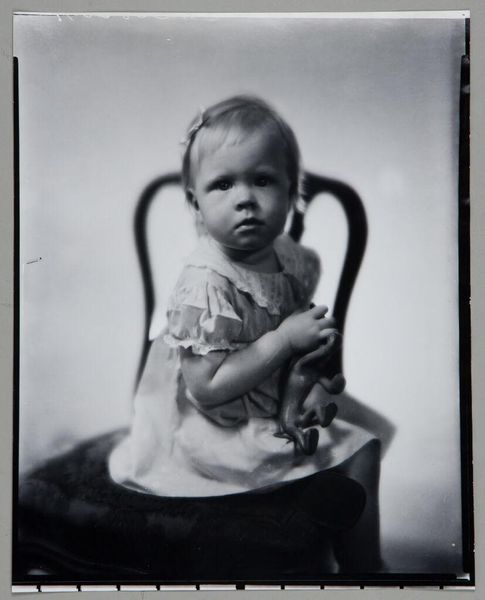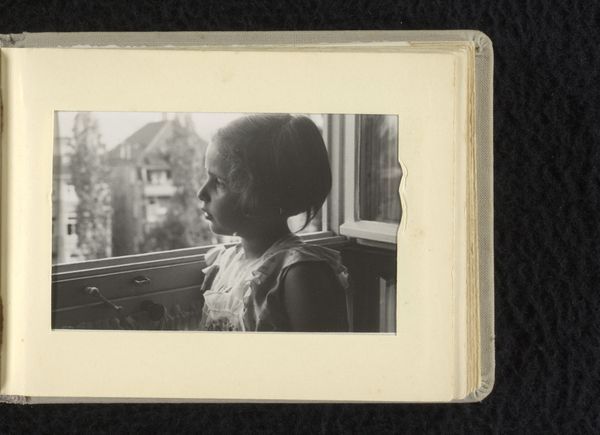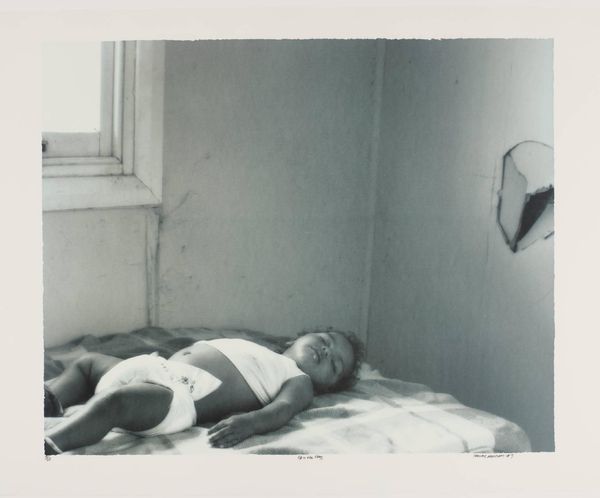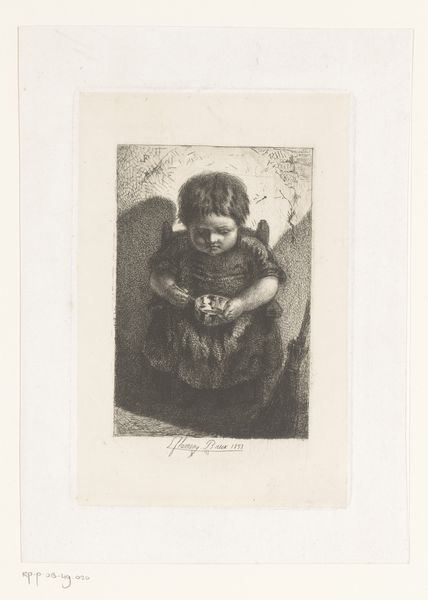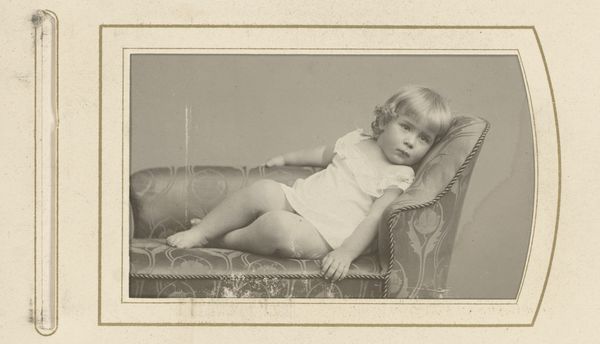
photography
#
portrait
#
photography
#
genre-painting
#
nude
Dimensions: height 98 mm, width 141 mm
Copyright: Rijks Museum: Open Domain
Curator: Oh, that face! This vintage photograph, titled "Netta Bergsma als baby naakt op een kleed op Sumatra"—which translates to "Netta Bergsma as a baby naked on a cloth on Sumatra"—was taken around 1919. What do you see? Editor: Immediately, a curious and contemplative energy emanates from that little human! I wonder about the textile they're laying upon, which looks like a type of Indonesian batik. Curator: It does, doesn't it? The stark black and white of the photograph emphasizes the textures; you can almost feel the intricate patterns beneath her skin. And it's striking, the contrast of this child with what must have been an unfamiliar, perhaps even harsh, colonial landscape. Editor: Absolutely. And the choice of photography, then still somewhat novel for everyday use, lends a certain documentarian weight. Look at how deliberately she's placed; consider the photographer's access to materials, too, in a time and place of extreme colonial inequalities. Curator: Yes! And what thoughts raced through the minds of the family or photographer at this intersection of culture, innocence, and empire? This isn't just a portrait; it's a portal. The soft light, almost angelic on her skin, feels intensely intimate and contrasts with what I imagine was a bustling colonial society. Editor: Intimate but posed—we should note the colonial power dynamic influencing image-making, here. Her 'innocence' is rendered consumable for a Western gaze by the clean composition, emphasizing accessibility through photographic technology. It makes you wonder who the photograph was made *for*, exactly. Curator: And it certainly gives a lens through which to imagine Netta's life unfolding from this origin, what sort of social circles she might have come to know. But back to Sumatra, this photo speaks so evocatively of this time period! Editor: True. Thinking about how colonial projects of photographic "discovery" reduced places and peoples to consumable images makes her relaxed pose seem defiant in some strange way! Anyway, it highlights how interwoven the means of image production were with specific forms of exploitation. Curator: You've opened my eyes to elements that add richness and challenge conventional interpretations of photography. It's an enduring piece, in so many ways. Editor: Indeed, a single photographic print invites deeper reflections on technology, colonial control, and image making from this important moment in the past!
Comments
No comments
Be the first to comment and join the conversation on the ultimate creative platform.
